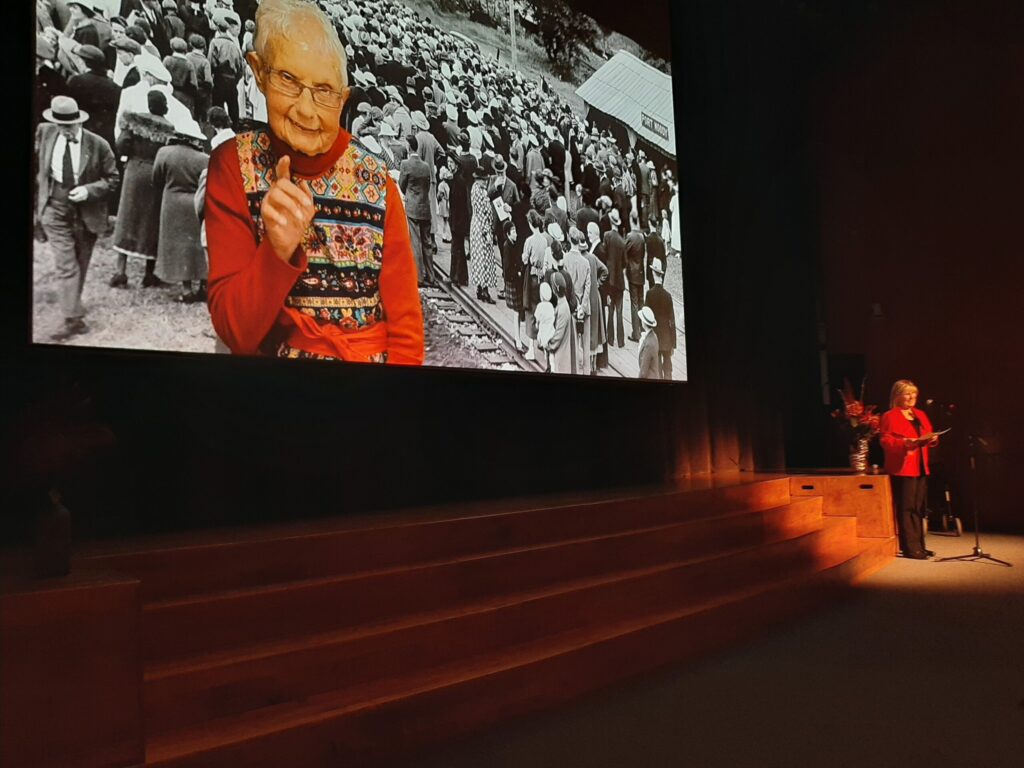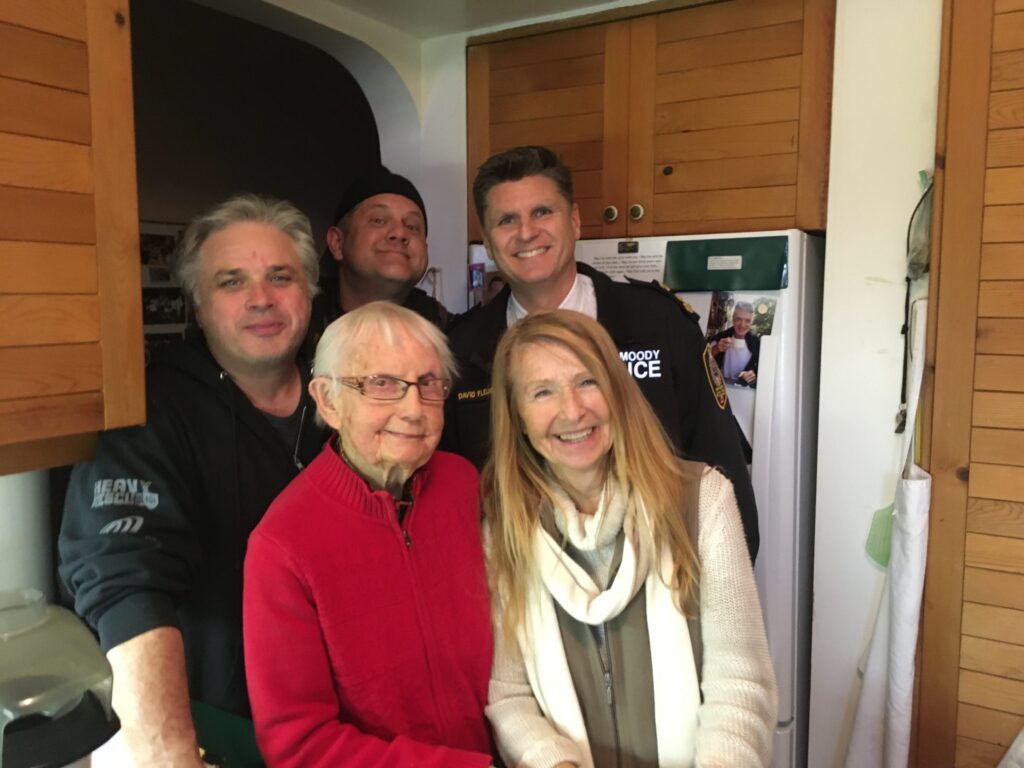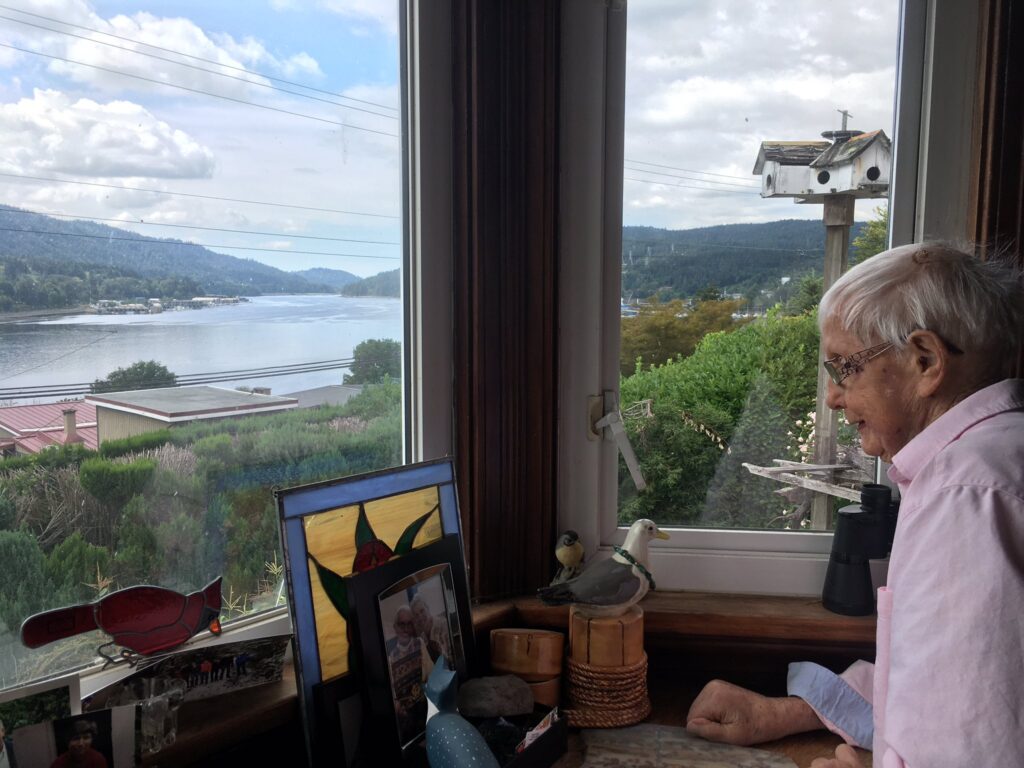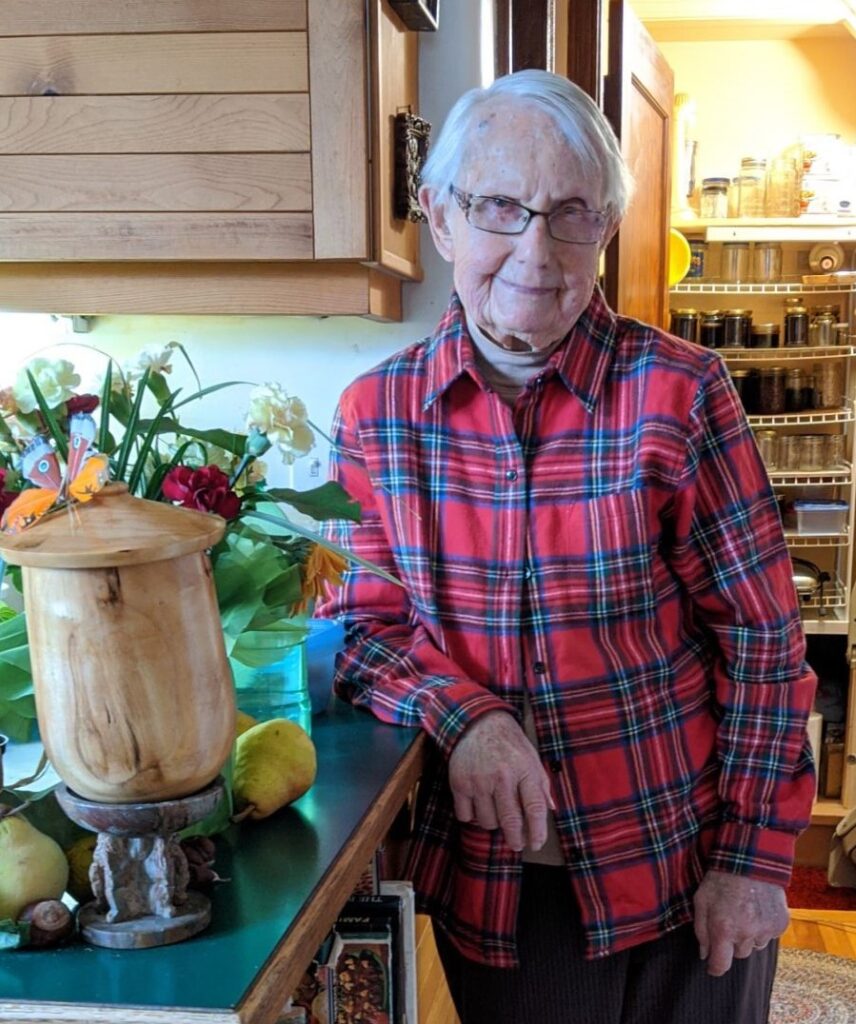Mary Anne Cooper, ‘Spirit Of Port Moody,’ Dies At 107
By Jeremy Shepherd
November 28, 2021
Mary Anne Cooper’s life was too big and movies were too small.
In the days before the premiere of The Spirit of Port Moody, director Eva Wunderman pondered the impossibility of chronicling a scientist/activist/educator/athlete; a woman who lived through more than a century of wars, pandemics, breakthroughs and setbacks and served as both a conscience and a beacon of good cheer for her community.
The movie could be good, it could even be great, but a documentary about Mary Anne Cooper could never be complete.
“There’s no way you can fit it into an hour,” Wunderman acknowledged.
Having spent three years spent trying to shoehorn Cooper’s remarkable life into a 64-minute film, Wunderman understood the stakes of telling that story.
“I have the whole community to answer to,” she noted.

Cooper died peacefully on Saturday evening. She was at home with family at her side, according to an announcement from friend Jeff McLellan.
“We have lost a dear friend, a remarkable, inspiring and certainly unforgettable woman who was a wise beyond her years,” McLellan wrote. “Community meant a lot to her and ours was very fortunate that she chose to call it home.”
Childhood
Born in Mount Vernon, Ohio in 1914, Cooper spent her first years of life amid the uncertainty created by the First World War and an influenza pandemic that would claim an estimated 50 million deaths around the world.
“We were lucky to have survived the great flu epidemic of 1918 when vaccinations were mandatory but resisted,” Cooper wrote.
Her father was an engineer, a career that opened up at least one memorable experience for his daughter.
Cooper was still a girl when her father introduced her to Charles Lindbergh as the legendary aviator was, about to board his plane. “Thrills!” she wrote.
Having edited the school newspaper, played cello in the orchestra, and competed on the swim team, Cooper graduated high school with a National Honors Society award.
As the country was dealing with Depression, Cooper got a job through Franklin D. Roosevelt’s National Youth Administration, allowing her to study at Ohio State University. She spent three years at OSU when a handsome young graduate took a shine to her.
Marriage, children and education
His name was William Buell Cooper but everyone called him Bob. He wanted Cooper to marry him.
Reflecting on that proposition 80 years later in The Spirit of Port Moody, Cooper recalls her reluctance.

“Oh my goodness. I’m not ready to get married. I’m going to conquer the world,” she said.
Her parents persuaded her and, on Jan. 1, 1936, the young couple took their vows.
“It was the beginning of the most wonderful life I could’ve imagined because we were both of the same adventuresome spirit. He was always willing to do anything,” she said.
The couple had three children and Cooper took on the traditional duties of a wife. “But I always had one eye out for finishing my education,” she added.
She tried to get back into school but was rejected by a university advisor who ruled that being a mother made her ineligible.
“For three solid days I cried my eyes out,” she said in The Spirit of Port Moody. “Then I decided: well, if this is the way it’s supposed to be, I’m going to make it the best thing I ever did in my life.”
While it took more time and persistence than it should have, Cooper eventually got her degree and spent 15 years teaching history and science before eventually enrolling in a doctoral program focused on integrating outdoor environmental experiences into the school system.
Her educational career dovetailed with a career in activism that began in 1968 when a developer planned to build on flood plains in Michigan.
“I helped organize a League of Woman Voters chapter to defeat this,” she wrote. “After much confrontation, we were able to convince them to cancel the proposal and to move it to a more suitable place.”

Retirement is the beginning
Looking forward to spending time with their daughter and son-in-law as well as their granddaughters in the late-1980s, Bob and Mary Anne bought a house on Ioco Road sight unseen.
Cooper hadn’t been in town for long when she joined the campaign to defend the Ioco townsite amid plans for demolition.
Her efforts to revitalize the Ioco Townsite resulted in Cooper winning a B.C. Achievement Foundation award as a “champion of heritage preservation and celebration.”
Her passion for heritage was undiminished by the years, according to friend Ruth Foster.
“At 107, she remained as sharp as a proverbial tack and was in constant planning mode especially when it came to heritage preservation,” Foster wrote.
‘Greetings and salutations’
Cooper was committed to heritage preservation. However, Foster remembers Cooper as being: “keenly interested in just about everything.”
The two bonded over gardening, teaching, recipes, community issues. and Foster’s grandson.
“She took quite a shine to my grandson who is 100 years younger and she supported his interest in ‘sciencing’ with lots of ideas and resources.”
Cooper tended to meet friends with “greeting and salutation,” before asking about the family.
She stayed on the move, even when moving was difficult.
“Until recently, she would travel with her walker (her ‘horse’) 45 times around the inside perimeter of her house each day for exercise,” Foster recalled. “She refused a wheelchair even when walking became painful and ever so tiring.”
Kindness and fun
As Cooper’s 107th birthday approached, she requested 107 acts of kindness be given to friends, strangers and to the community. That request turned into neighbours raking each other’s leaves and baking each other muffins, as well as donations to food banks and small charitable gestures within neighbourhoods and families.
Looking over those acts, Cooper was quoted as stating: “All the wonderful expressions made by friends in Port Moody are so deeply appreciated and humbly received forever,’” recounted friend Tracy Green.

Thinking of the future
The Spirit of Port Moody captured footage of Cooper wandering, relaxing, exhorting adults to action and speaking to children about the community of the forest.
For someone with so much history, her focus was unfailingly on growing, protecting, preserving and learning. On the future. On what could be done.
“We haven’t stopped yet,” she said. “We have work to do.”
The Spirit of Port Moody is scheduled to screen Dec. 11 at Inlet Theatre.
Related: Premiere: Mary Anne Cooper and the search for ‘little miracles’
Jeremy Shepherd is the Managing Editor of the Tri-Cities Dispatch. Read the full story here.
